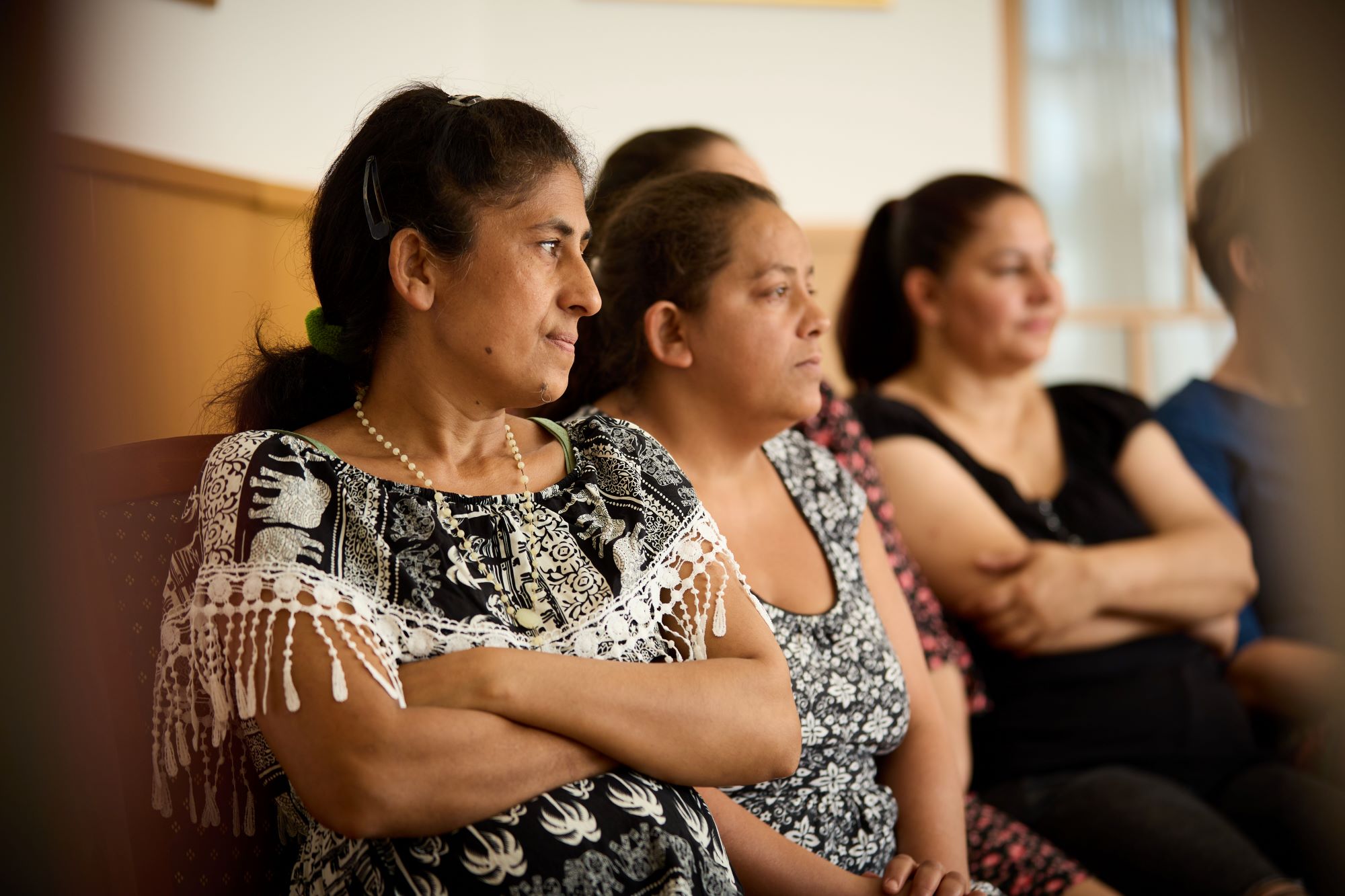
Our NGO calls on the Slovak Parliament to address the shortcomings of the currently negotiated draft law on compensation for illegally sterilized women
These days the National Council of the Slovak Republic (Slovak parliament) is negotiating in the second reading the draft law on compensation of persons sterilized in violation of the law. Its aim is to compensate women who were illegally sterilised between 1966 and 2004 without providing informed consent. However, our NGO points out that the current draft has a number of serious flaws. We argue the many women affected are unlikely to ever obtain compensation if these are not removed. A similar call has already been sent to Parliament by the national anti-discrimination body and by the Council of Europe Commissioner for Human Rights.
The draft law on financial compensation for persons sterilised in violation of the law has been submitted to the Slovak Parliament by Mr. Petr Pollak, an MP from the OĽANO party. On 23 May 2023, the Parliament initially discussed the draft and referred it to the second reading within parliamentary legislative process. In recent days, both the Constitutional Law Parliamentary Committee and the Health Parliamentary Committee discussed the proposal, and their resolutions recommended that it be approved.
Our NGO – the Center for Civil and Human Rights (Poradňa) – welcomes the submission of the draft law and has been pursuing its adoption for more than 20 years. At the same time, however, we are pointing out that the current wording of the law proposal has a number of shortcomings and there is a real risk that many women who have been illegally sterilised will never be compensated on the basis of it. Our comments on the proposal have not been sufficiently taken into account by the parliamentary committees or by individual MEPs and have not yet been fully reflected in any amendments.
In particular, we draw attention to the following:
- How to deal with unavailable medical records: we point out in our comments that, since the state authorities has not addressed this issue for a long time – the medical records of many women who have been illegally sterilised will be unavailable. They have been shredded or destroyed. It is therefore absolutely crucial that, in such cases, illegal sterilisation is deemed to have taken place and that women are awarded compensation. The proposal does state that sterilisation can be proved by the credible testimony of the applicant. However, it is vague on this point – allowing for a wide degree of subjective interpretation and ultimately shifting the burden of proof to the women. There is thus, in our opinion, a real risk that the available data from medical records will ultimately be decisive in assessing compensation claims. This is also suggested by the experience of a similar process in the Czech Republic, in which claims by women without medical documentation are rejected.
- Illegal sterilisations are a human rights issue, not a medical one: We are also critical of the fact that the responsibility for assessing claims for compensation is given to the Ministry of Health in the proposal. The assessment of claims by illegally sterilised Roma women is not a medical process, but a purely human rights process, and the Ministry of Justice should be responsible.
- The amount of compensation for illegal sterilisation must not be merely symbolic: We also stress that the proposed amount of compensation of EUR 5 000 is disproportionately low and does not sufficiently take into account the seriousness of the violation of the rights of illegally sterilised women. Ultimately, this amount fails to provide effective redress for the injured women in accordance with international law. Notably, the UN Committee against Torture has recently indicated in its recommendation to Slovakia on this matter.
Commenting on the shortcomings of the draft law, Vanda Durbáková, a lawyer working with our NGO who has represented several illegally sterilised Roma women in court proceedings in the past, said:
“By adopting a quality compensation law, Slovakia finally has a chance after decades to right the wrongs done to illegally sterilized women. The state bears full responsibility for this very serious violation of women’s rights. It is therefore essential that the entire burden of proof in the reparation process be shifted to the state. The latter must have the full obligation to gather evidence and, if it is not available, it will be assumed that illegal sterilisation has taken place. For women harmed by this practice, the process of obtaining compensation must be simple, accessible and non-traumatic. The current wording of the law does not, in my view, fully ensure this.”
The Slovak National Centre for Human Rights as a national anti-discrimination body also sent comments on the draft law in a similar content framework to the parliament. The Commissioner for Human Rights of the Council of Europe, Dunja Mijatović, also developed her comments raising a number of the same issues and has written to MEPs about the need to incorporate them into the draft law.
In order to ensure effective access to justice for as many forcibly sterilised women as possible, it is essential that Parliament approves the draft law in a wording that reflects the comments of our NGO as well as national and international human rights bodies.
Additional context
Cases of illegal sterilizations were documented by our NGO in cooperation with the international organization Center for Reproductive Rights in 2003 in the published report Body and Soul: Forced Sterilizations and Other Attacks on the Reproductive Freedom of Roma in Slovakia. Illegal sterilisations without informed consent occurred in Slovak hospitals until 2004. With our support, several of the injured women obtained justice in the European Court of Human Rights and in Slovak courts. We have long advocated for the creation of an effective mechanism by the executive and the legislature whereby injured women would be effectively compensated.
The press release in PDF is available here.

